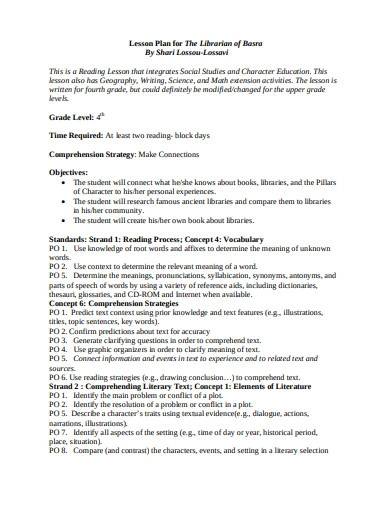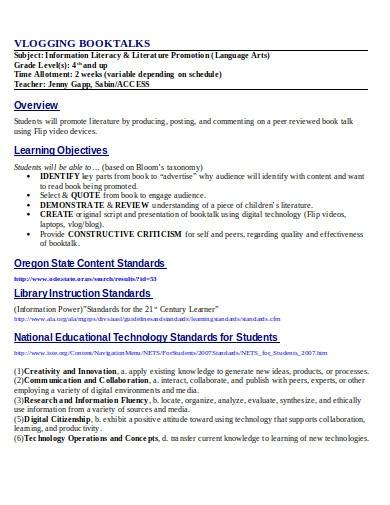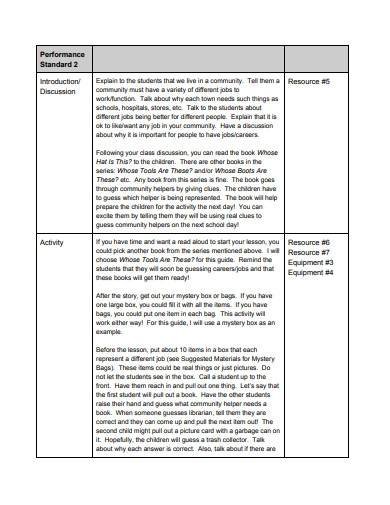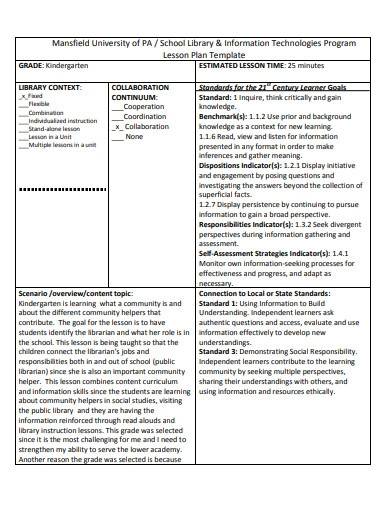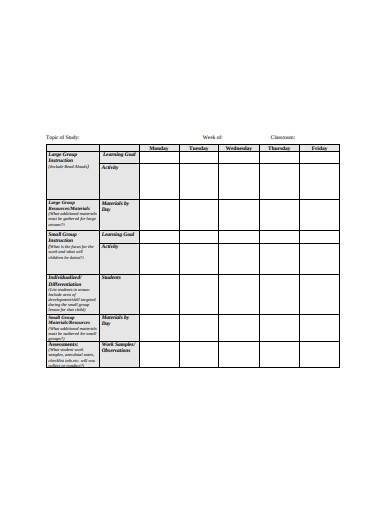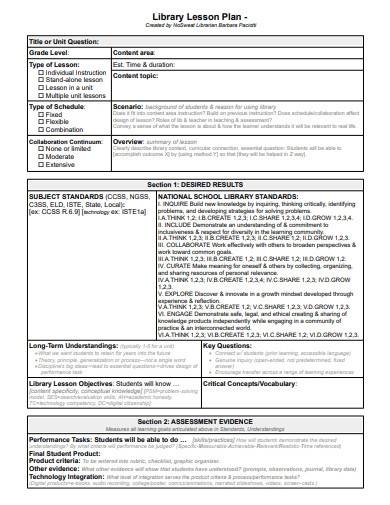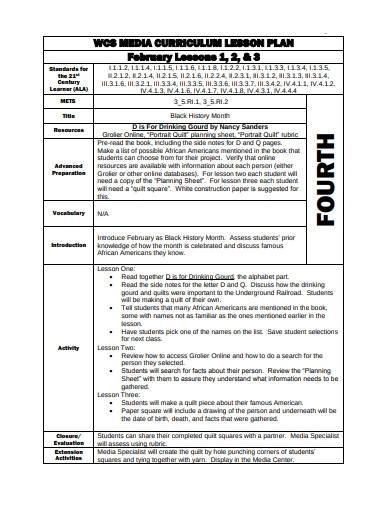Abigail Adams said: “Learning is not attained by chance, it must be sought for with ardor and attended to with diligence.” Do you want to work as a librarian? Despite libraries being slow to change, you can step up your game as a professional individual to initiate change in the library you’re going to be assigned to. To be productive in your work, you should develop good habits like time management, and create an effective lesson plan as well. In this article, we are glad to help you have insight for your success by using our guide and downloadable plan samples. Keep on reading!
FREE 10+ Librarian Lesson Plan Samples
1. Daily Lesson Plan Template
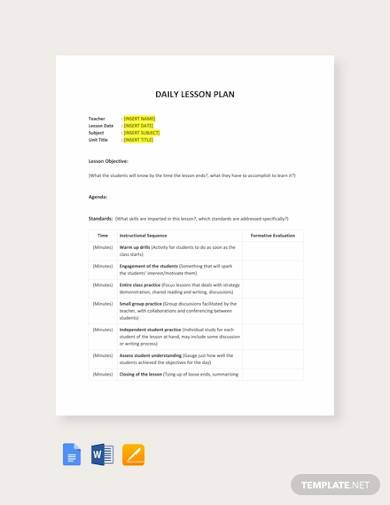
2. Free Blank Lesson Plan Template
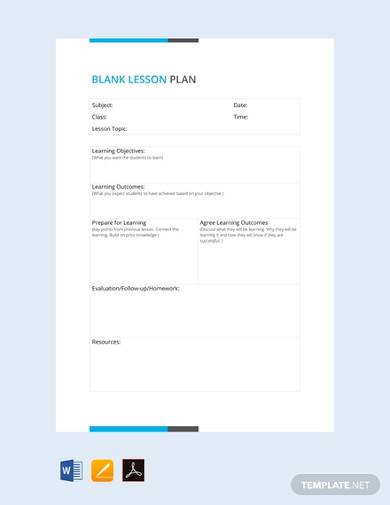
3. Free Preschool Lesson Plan Template
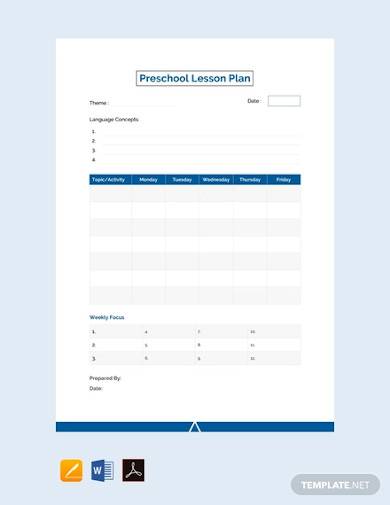
4. Free Daily Lesson Plan Template
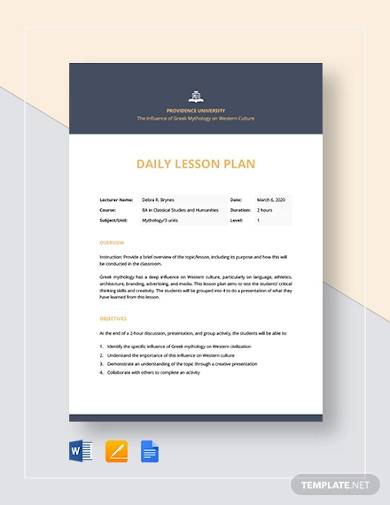
5. Librarian Lesson Plan Template
6. Basic Librarian Lesson Plan
7. Sample Librarian Lesson Plan
8. School Library Lesson Plan
9. Weekly Librarian Lesson Plan Template
10. Standard Library Lesson Plan
11. Librarian Curriculum Lesson Plan
What is a Librarian Lesson Plan?
A library lesson plan is a well-detailed plan composed of certain ideas, primary objectives, methods, and strategies that are designed to help students enhance reading and literacy, and are essential for information skills, reading, and technology lessons. It acts as a guide for the librarian on how he or she will teach the students about using library research in their studies.
How to Write a Librarian Lesson Plan
The book “The Role of the Academic Librarian” states that with your professional specialty in information technology and skills in organizing and classifying, there’s still a possibility that piles of books, and papers are placed in every surface of your office. Despite the towering piles of documents, you can find any item in your office if you have an efficient system that you use consistently. And this skill is much needed in writing your lesson plan.
In this section, we provide some helpful ways that you should think consciously:
1. Determine the learning objectives
As a school librarian, you need to determine the learning objectives for pupils or students according to their grade or year levels. For example, Grade 4 pupils should be able to select and read a diverse collection of literary works such as fiction and non-fiction and represent different authors and illustrators, styles, themes, and cultures. While Grade 11 students should be able to use proper methodology in collecting, organizing, interpreting, and analyzing information.
2. Outline the specific learning activities and methods to assess your students’ library skills
Develop an outline about certain learning activities for developing library skills, such as researching a topic, finding books on the shelves, and acting out stories. If you’re teaching in an online learning platform, an article suggested that you can perform several virtual library activities for your students such as hosting a live Google Hangout, or similar live broadcast while reading a book aloud to students, reviewing how to access and use your library’s e-books, etc.
3. Sequence the lesson in an engaging and relevant style
Robert Wyatt once said: “I don’t know how many thoughts we have a second, but it’s quite an amazing number, and just to pin down the appropriate sequence of those, all you really need is a pencil and a piece of paper.” Thus, after having your main objectives and learning activities, you need to sequence and organize each lesson in an engaging and relevant style to deeply motivate your students in their studies.
4. Set up a realistic timeline
The Center For Research On Learning and Teaching University of Michigan explains that library instructors should narrow down the list to two or three primary concepts, ideas, or skills that you like for your students to achieve. You often need to adjust your lesson plan during class depending on the necessities of your students.
So, a structured list of prioritized learning objectives is a beneficial tool in setting up a realistic timeline for your lesson plan. Estimate the time duration of each activity and plan extra time for each. Indicate how much time you assume it will be done.
FAQs
The five primary parts of the lesson plan are objectives, warm-up, presentation, practice, and assessment.What are the 5 parts of the lesson plan?
The different types of lesson plans include: daily lesson plans, weekly lesson plans, topic or subject lesson plans, unit lesson plans, eLearning lesson plans, and many more. What are the different types of lesson plan?
The 7 Es of a lesson plan are elicit, engage, explore, elaborate,explain, extend and evaluate.What are the 7 E’s of lesson plan?
You should consider the interests of your students in your lessons. Choose meaningful activities and assignments. Build relevant lessons and share them with your colleagues. Edit and revise your lessons according to their feedback.How do you create an effective lesson plan?
Being a librarian can be a worthwhile experience while teaching your students about informational, research, and library skills. Aside from this, you need to take a moment to contemplate your work habits in connection to your daily body rhythms. Perhaps you’re very alert and sharp at times in the morning or you may be tired and slow for some reason. You need to be attentive and focus when you’re working on the most demanding and strenuous projects. To help you with your lesson plan for elementary, middle school, or high school students, we have included several plan samples that you can use.
Related Posts
FREE Sample Toddler Lesson Plan Templates in Pages Google ...
FREE 14+ Sample Physical Education Lesson Plan Templates in ...
FREE 8+ Sample Toddler Lesson Plan Templates in PDF MS Word
FREE 10+ Sample Kindergarten Lesson Plan Templates in PDF ...
FREE 9+ Sample Preschool Lesson Plan Templates in MS Word PDF
FREE 10+ Sample High School Lesson Plan Templates in PDF MS ...
FREE 7+ Sample Music Lesson Plan Templates in PDF PSD
FREE 6+ Sample Lesson Plan Templates in PDF MS Word
FREE 8+ Sample Kindergarten Lesson Plan Templates in PDF MS ...
FREE 8+ Sample Daily Lesson Plan Templates in PDF MS Word
FREE 10+ Sample Preschool Lesson Plan Templates in Google ...
FREE 10+ Music Lesson Plan Samples in MS Word PDF
FREE 8+ Sample Guided Reading Lesson Plan Templates in PDF
FREE 9+ Sample High School Lesson Plan Templates in PDF MS ...
FREE 9+ Sample Teacher Lesson Plan Templates in PDF MS Word

